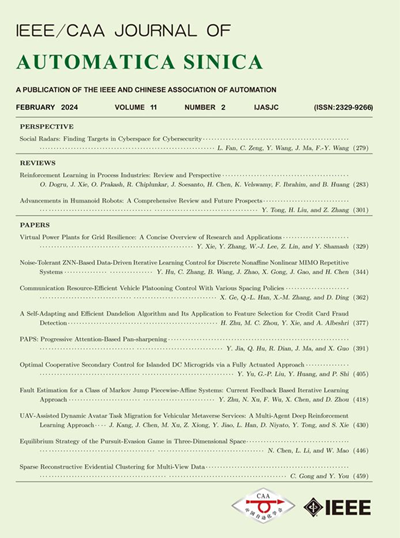Attention Markets of Blockchain-Based Decentralized Autonomous Organizations
IF 15.3
1区 计算机科学
Q1 AUTOMATION & CONTROL SYSTEMS
引用次数: 0
Abstract
The attention is a scarce resource in decentralized autonomous organizations (DAOs), as their self-governance relies heavily on the attention-intensive decision-making process of “proposal and voting”. To prevent the negative effects of proposers' attention-capturing strategies that contribute to the “tragedy of the commons” and ensure an efficient distribution of attention among multiple proposals, it is necessary to establish a market-driven allocation scheme for DAOs' attention. First, the Harberger tax-based attention markets are designed to facilitate its allocation via continuous and automated trading, where the individualized Harberger tax rate (HTR) determined by the proposers' reputation is adopted. Then, the Stackelberg game model is formulated in these markets, casting attention to owners in the role of leaders and other competitive proposers as followers. Its equilibrium trading strategies are also discussed to unravel the intricate dynamics of attention pricing. Moreover, utilizing the single-round Stackelberg game as an illustrative example, the existence of Nash equilibrium trading strategies is demonstrated. Finally, the impact of individualized HTR on trading strategies is investigated, and results suggest that it has a negative correlation with leaders' self-accessed prices and ownership duration, but its effect on their revenues varies under different conditions. This study is expected to provide valuable insights into leveraging attention resources to improve DAOs' governance and decision-making process.关注基于区块链的去中心化自治组织市场
注意力是分散自治组织(DAO)的稀缺资源,因为其自治主要依赖于 "提案和投票 "这一注意力密集型决策过程。为了防止提案人的注意力捕获策略造成 "公地悲剧 "的负面影响,确保注意力在多个提案之间的有效分配,有必要建立一种市场驱动的自治组织注意力分配方案。首先,设计了基于哈伯格税率的注意力市场,通过连续和自动交易促进注意力分配,其中采用了由提案人声誉决定的个性化哈伯格税率(HTR)。然后,在这些市场中建立了斯塔克尔伯格博弈模型,将注意力所有者视为领导者,其他有竞争力的提议者视为追随者。同时还讨论了其均衡交易策略,以揭示注意力定价的复杂动态。此外,以单轮斯塔克尔伯格博弈为例,证明了纳什均衡交易策略的存在。最后,研究了个性化 HTR 对交易策略的影响,结果表明,个性化 HTR 与领导者的自我访问价格和所有权持续时间呈负相关,但在不同条件下对其收入的影响各不相同。这项研究有望为利用注意力资源改善 DAOs 的治理和决策过程提供有价值的见解。
本文章由计算机程序翻译,如有差异,请以英文原文为准。
求助全文
约1分钟内获得全文
求助全文
来源期刊

Ieee-Caa Journal of Automatica Sinica
Engineering-Control and Systems Engineering
CiteScore
23.50
自引率
11.00%
发文量
880
期刊介绍:
The IEEE/CAA Journal of Automatica Sinica is a reputable journal that publishes high-quality papers in English on original theoretical/experimental research and development in the field of automation. The journal covers a wide range of topics including automatic control, artificial intelligence and intelligent control, systems theory and engineering, pattern recognition and intelligent systems, automation engineering and applications, information processing and information systems, network-based automation, robotics, sensing and measurement, and navigation, guidance, and control.
Additionally, the journal is abstracted/indexed in several prominent databases including SCIE (Science Citation Index Expanded), EI (Engineering Index), Inspec, Scopus, SCImago, DBLP, CNKI (China National Knowledge Infrastructure), CSCD (Chinese Science Citation Database), and IEEE Xplore.
 求助内容:
求助内容: 应助结果提醒方式:
应助结果提醒方式:


